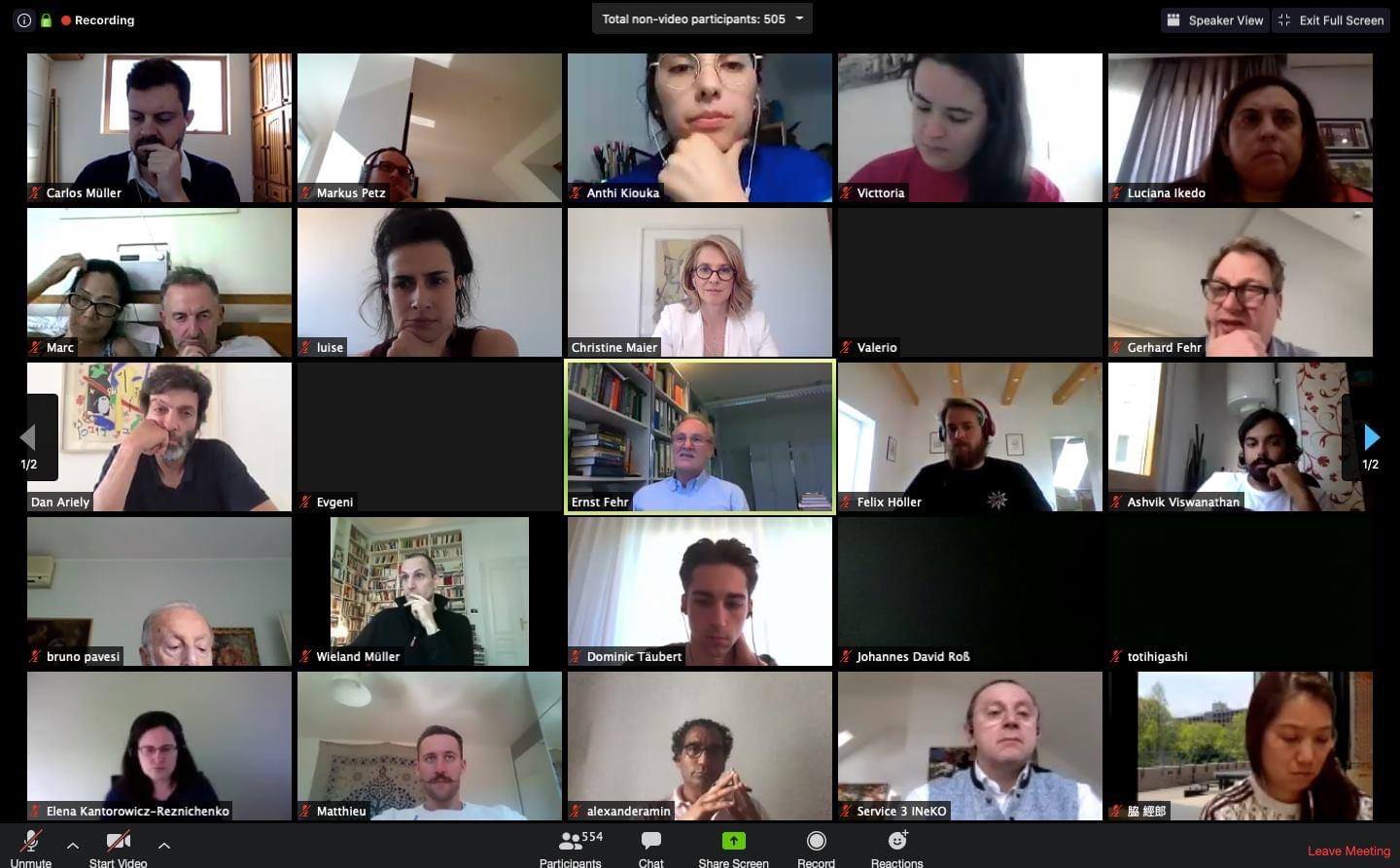
In order to develop an effective strategy and find a way back to normal, we have to continuously collect infection data. Who got infected? Who was this person in contact with? Is there an infection cluster behind an identified case?
Currently, testing is only carried out if there is justified suspicion of an infection. Two top behavioral economists, Dan Ariely (Duke University) and Ernst Fehr (University of Zurich) have doubts about the effectiveness of this approach. During a digital event hosted by the Vienna Behavioral Economics Network on May 27, the scientists discussed which measures are promising for finding a way out of the novel coronavirus crisis. They underlined the need for representative, randomized testing for COVID-19 in all countries, as this approach is not only more effective, but also more cost-effective.
Why test?
“We are still taking far-reaching measures without a solid base in data”, said Dan Ariely, who joined from Israel. “Therefore, we have to collect more data, in order to be able to understand the current situation.” Ernst Fehr added that these data should be gathered from representative samples. “If we do not begin to collect this kind of data, it will be difficult to find a way back to normal”, Fehr remarked.
Representative tests with random samples offer many advantages over the strategy of only testing suspected cases or risk groups. Above all, these tests enable to take evidence-based measures, the economists explained.
Without representative tests, governments tend to make risk-averse decisions – and possibly steps that are more drastic than necessary. Nobody wants to endanger life, so economic and social life is currently more restricted than it needs to be. This pattern can be broken with representative tests, because people would have much better knowledge of their infection status. Moreover, randomized tests help develop systematic insights into the virus and its infection chains.
Initiative for randomized testing
For countries the size of Austria or Switzerland with a population of around 10 million, Fehr suggest a regular test on 10,000 people. “By doing so, we would be able to pinpoint hotspots, identify which professional and population groups are particularly at risk, and evaluate how individual measures work. Importantly, such a regular test on a sample of that size costs significantly less than a second lockdown.”
In order to raise political and public awareness of the need for representative tests to cope with the coronavirus crisis, Ernst Fehr and Dan Ariely supports the “Test the World” initiative launched a few days ago. It campaigns for nationwide randomized testing that allows the population and businesses to live with COVID-19.
Read more: testtheworld.org
